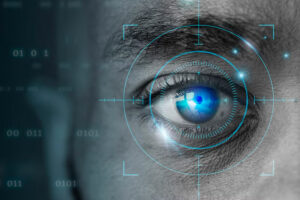By Aubrey Rose A. Inosante
LONDON-BASED identity verification provider iProov is planning to enter the Philippine market to offer its services amid growing cases of fraud and deepfakes in the country, its top official said.
“We are investing in developing the market in the Philippines,” iProov Chief Executive Officer Andrew Bud told BusinessWorld in a video call on June 28.
“The British ambassador to the Philippines visited our office. For us, the Philippines is a large, exciting, and important market, and we are doing everything we can to enable citizens and employees to benefit from the trust and security that bring to online transactions,” he added.
iProov said it can verify identities with a 98% success rate in 1.2 attempts that take just about six seconds to determine if the person is real or a deepfake.
Among iProov’s current clients are the Australian federal government and tax office, Britain for travel immigration authorization, and the United States Department of Homeland Security and Internal Revenue Service, among others.
Asia-Pacific has been an important territory for the company since 2019, which was when it began working with the Singaporean government on Singpass, a digital identity for its residents that allows them to access state services online, Mr. Bud said.
iProov is also active in the banking sector, he added.
Mr. Bud said between the first and second semesters of 2023, the company saw a 704% increase in attacks using the digital injection of deepfake face swap.
Deepfakes are now no longer detectable by the naked eye and even trained and experienced scientists, he noted, which is where the use of artificial intelligence systems can provide assistance.
“In our servers, we look at how the faces are reflecting that illumination and how that illumination is being affected by the unpredictable ambient light,” Mr. Bud said about their process of identity verification.
He said the way light is reflected on one’s face helps them tell if the person in the video is a live, skin-covered, three-dimensional human face-shaped object or not.
“We can confidently say from our most recent measurements that there is no statistically significant bias between different ethnicities, skin tones, or ages above 18,” he added.
iProov was founded in 2011. It began operations in 2013 and is now present in 180 countries.
